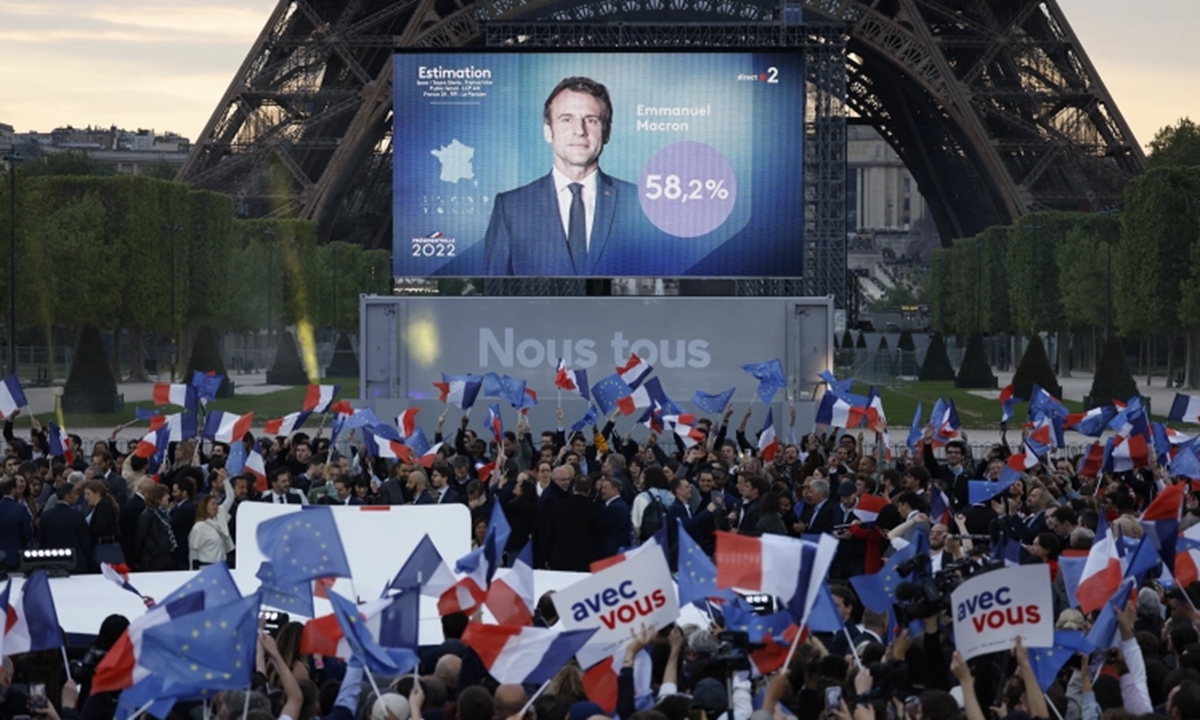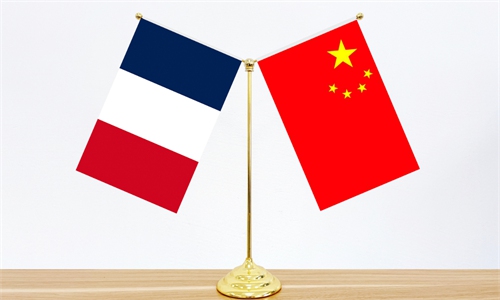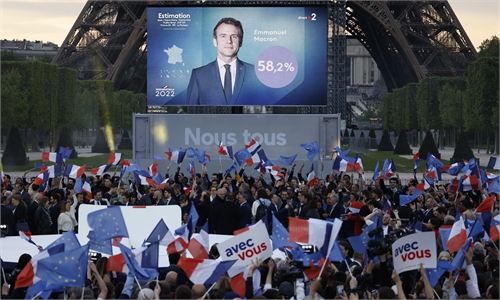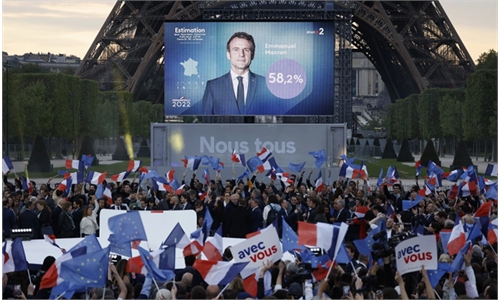Alliance to offer stiff opposition after poor election results
French left to challenge Macron

Supporters cheer after the victory of Emmanuel Macron in France's presidential election, at the Champ de Mars, in Paris, on April 24, 2022. Photo: AFP
France's left-of-center parties were on Tuesday close to a broad alliance for June parliamentary polls, hoping that a united front can offer stiff opposition in President Emmanuel Macron's second term after a disappointing presidential election.
Greens and Communists have fallen into line behind the hard-left France Unbowed (LFI) movement, and the once-mighty Socialist Party (PS) is expected to follow.
"The different parts of the left are not as irreconcilable as all that," PS negotiator Pierre Jouvet told Europe 1 radio.
He said the talks were "a few steps from a historic agreement," while acknowledging that there were "some adjustments" to party programs and constituency allocations to fine-tune before a deal was sealed.
"There are some sticking points, sometimes on substance but mostly about seats," said LFI negotiator Manuel Bompard.
A strong showing from LFI leader Jean-Luc Melenchon saw him fall just short of reaching the second round runoff in the April presidential vote, while other left candidates were all but wiped out.
After Macron's presidential win, Melenchon immediately called on voters to "elect him prime minister" and hand the left a National Assembly majority to block the centrist's plans.
Surveys from recent days suggest most French voters would prefer Macron, widely attacked for his pro-business reforms seen as favoring the rich, to "cohabit" with a prime minister from another political school of thought.
Like the presidential election, the legislative polls in France's 577 constituencies work in a two-round system, meaning alliances off the bat offer the best chance of making it to the runoff.
Negotiations between the PS and LFI continued late into the night on Tuesday.
At stake are important policy issues, with LFI's proposal to unilaterally "disobey" the provisions of some European Union treaties a particular sticking point for more moderate potential allies.
Behind the euphoria at overcoming the traditionally fragmented French left's differences, the junior partners are also eying how constituencies will be parceled out between the parties, with each of them hoping to run on the united ticket in a maximum of "winnable" seats.
The Greens will run for 100 seats, with 30 seen as winnable, while the PS hopes to add to its existing parliamentary group of 25 MPs.
"Unbelievable that all these people supposedly shot through with principles are ready to abandon all convictions... for a handful of seats," Sacha Houlie, a pro-Macron MP, tweeted on Monday.
"And they want to govern our country?" he added, potentially foreshadowing the majority's line of attack on its new opponents.
AFP



